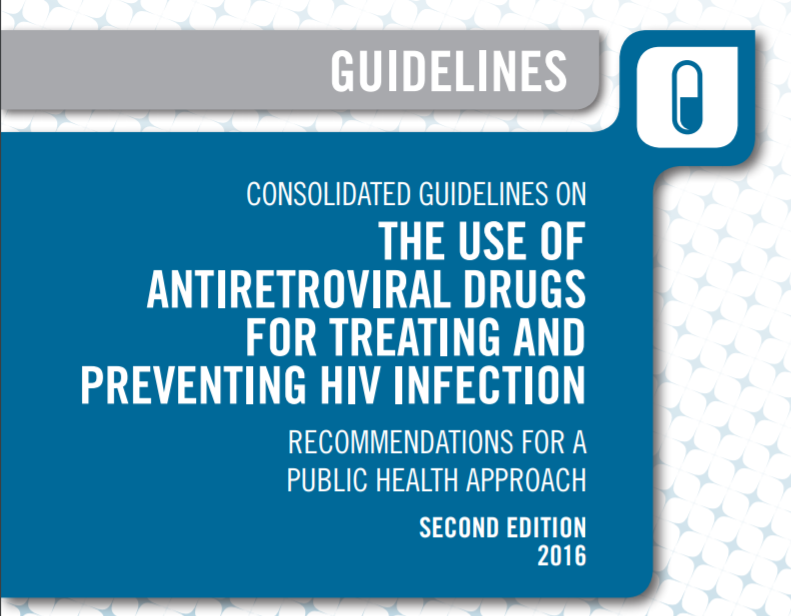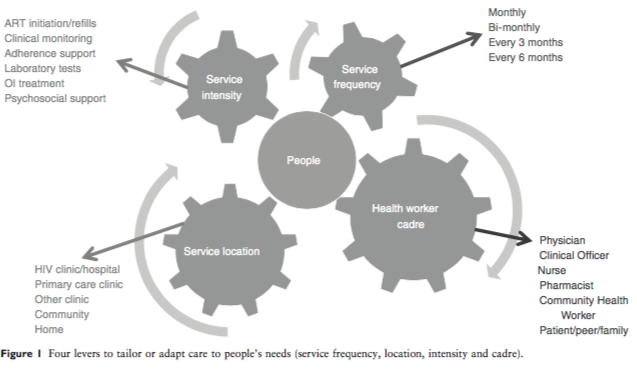Differentiated Service Delivery
Differentiated Service Delivery for HIV is considered the standard of care globally. The approach has been fully adopted by many countries and is supported by WHO, UNAIDS, PEPFAR, and the Global Fund.
The Program
Differentiated Service Delivery
CIGH leadership has been involved in efforts to streamline and “real-size” HIV care from the formative stages. In consultation with the Bill and Melinda Gates Foundation in 2014, Dr. Holmes and colleagues recognized that HIV programs had been so successful in scaling up antiretroviral treatment that health systems constraints were emerging that limited quantity and quality of care provision.
Substantial overseas development aid for health allowed HIV programs to provide access to lifesaving treatment in the first decade of the global response, but human resources, financing and brick and mortar clinics were becoming overwhelmed. Simpler and safer treatment regimens and an earlier start to treatment while people were still healthy were recommended by WHO in 2013 and allowed for new avenues for delivery channels less reliant on monthly clinic visits.
“Substantial overseas development aid for health allowed HIV programs to provide access to lifesaving treatment in the first decade of the global response, but human resources, financing and brick and mortar clinics were becoming overwhelmed.”

In an influential 2015 paper, we characterized these new approaches and recommended a way forward that would differentiate care to patient needs by altering the “(i) types of services delivered, (ii) location of service delivery, (iii) provider of health services and (iv) frequency of health services.” This approach was ultimately named “differentiated service delivery,” and Dr. Holmes served on the WHO Guidelines Committee that adopted the approach into the 2016 WHO Consolidated Treatment Guidelines.
While this normative guidance was being developed, we worked at CIDRZ to support studies of care differentiation by clinical status in Zambia. Working from a grant from the Bill and Melinda Gates Foundation, CIDRZ and collaborators conducted representative surveys to assess individual’s preferences for service delivery, and conducted rigorous implementation science trials of four differentiated service delivery models. This work helped to define the field of implementation science for differentiated service delivery, as highlighted in this ICAP Grand Rounds, and it supported the Zambian government’s decisions to adopt elements of differentiated service delivery into national policy.
Differentiated Service Delivery for HIV is now considered the standard of care globally, has been fully adopted by many countries, and is supported by WHO, UNAIDS, PEPFAR, and the Global Fund.
The differentiated service delivery approach

